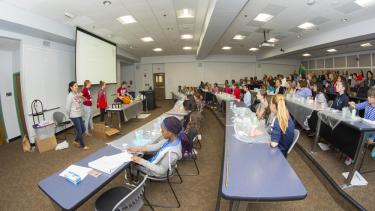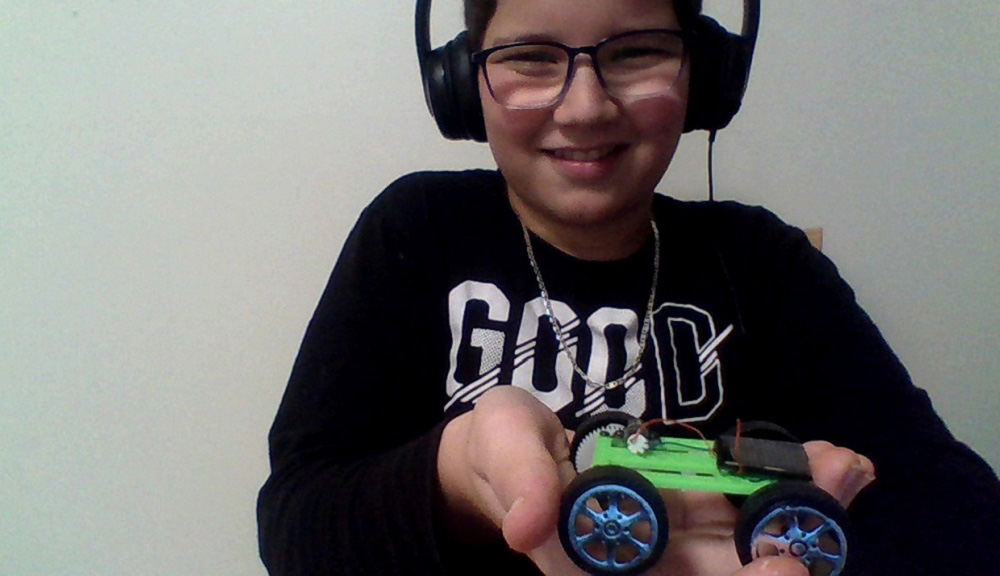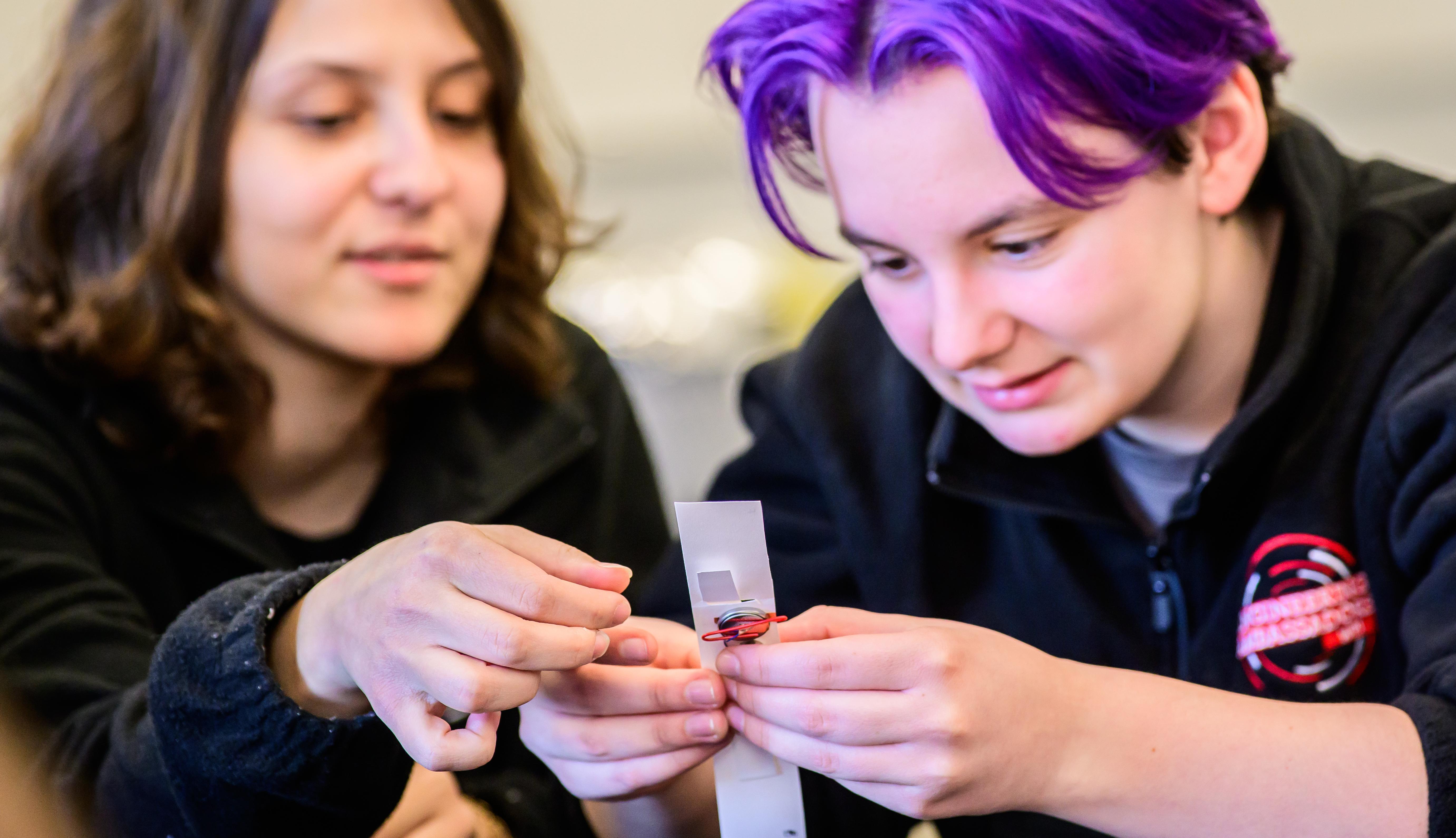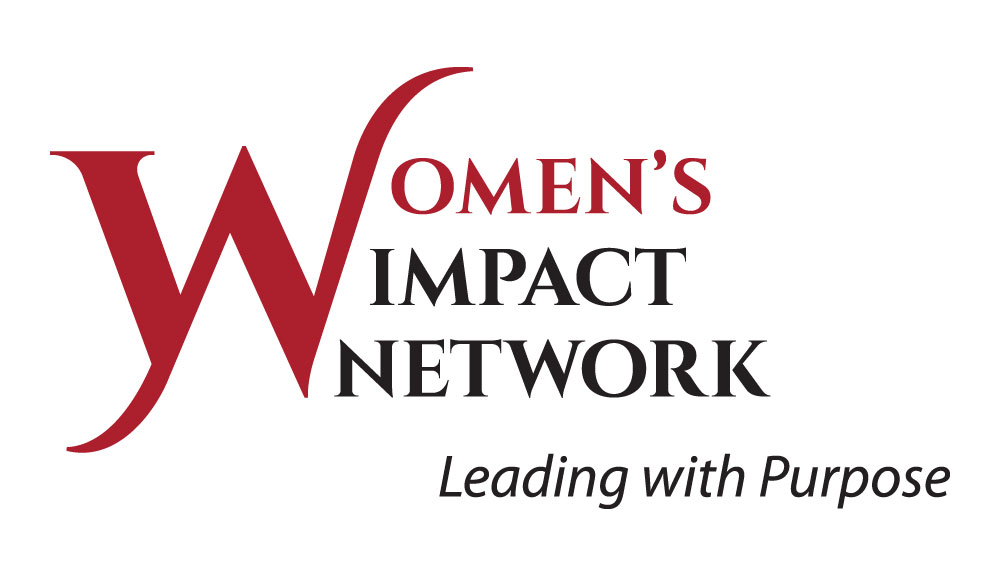What’s a sure sign that an institution getting very, very serious about an initiative? It sets up a department with staffers fully dedicated and committed to the cause at hand.
In this case, it’s WPI and its new Office of Pre-Collegiate Outreach Programs.
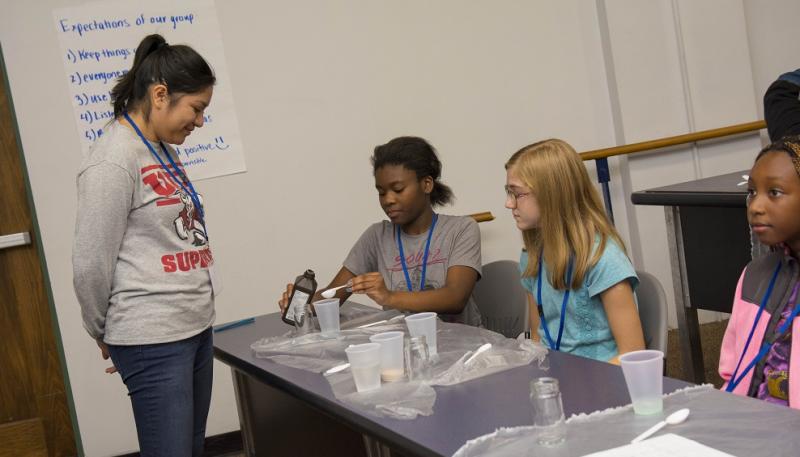
An instructor in the Tech Girls program supervises an
experiment.
The practice itself is nothing new. WPI has been reaching out to pre-college students and introducing STEM-related topics with summer programs and the like for over three decades. But this year, all its efforts are under one roof, with an expanded staff and targeted goals for the future.
Director Suzanne Sontgerath is enjoying the new, streamlined effort. “It’s the exciting part of developing this office—the time and ability to focus more,” she says, adding that it’s a natural progression for WPI to ramp up and reorganize this important aspect of its work.
“We have a reputation as a project-based learning institution,” she says. “So this fits perfectly with outreach. The ideas of teamwork and collaboration fit well.”
New vantage point
Formerly under the Admissions Department umbrella, Sontgerath and five staff members will coordinate WPI’s summer and academic programs aimed at guiding K-8 and high school students into the STEM pipeline. Including teacher development programs run through the STEM Education Center, WPI Outreach programming has already educated thousands of people on STEM topics, STEM education, and STEM-related work over the years, she says.
“As a STEM institution, we are responsible for supporting the STEM pipeline as a whole,” beyond recruiting for the school itself, says Sontgerath.
Programs include Introduce a Girl to Engineering Day; STEM Saturdays, and Tech Girls, summer academic programs, and middle school tours.
Then and now
Sontgerath says that the STEM Education Center, run by Martha Cyr, provides another important piece of STEM pre-collegiate outreach efforts: educating teachers. Parent education is done through the STEM Saturdays program.
Teachers, she says, have the potential to reach a larger audience as compared with educating one child at a time. And parents benefit from seeing STEM academic degrees as a foundation for specific, top-paying STEM careers for their children. If they need help with college financial or admissions work, the STEM Saturdays program can help with that too, she says.
With student programming, however, it is easier to track tangible results, says Sontgerath.
WPI follows students who participate in its summer, on-campus residential program outreach program, Frontiers. In the Class of 2020, there are more than 60 Frontiers alumni, she says. And of the 36 girls who entered the Camp Reach program in seventh grade, seven are WPI first-year students.
As for what’s ahead, Sontgerath says the office has targeted goals: to work on reaching out to traditionally underrepresented STEM groups, such as women and people of color. The office is planning a girls’ robotics or Girls Who Code–type of program. Grants are being researched to bring in more funding.
“We now have the resources to spend more time on direct outreach to our community partners who are serving families in a lower socio-economic base,” Sontgerath says. “We hope to be able to bring more of those students to campus for our programs.”
- By Susan Shalhoub
